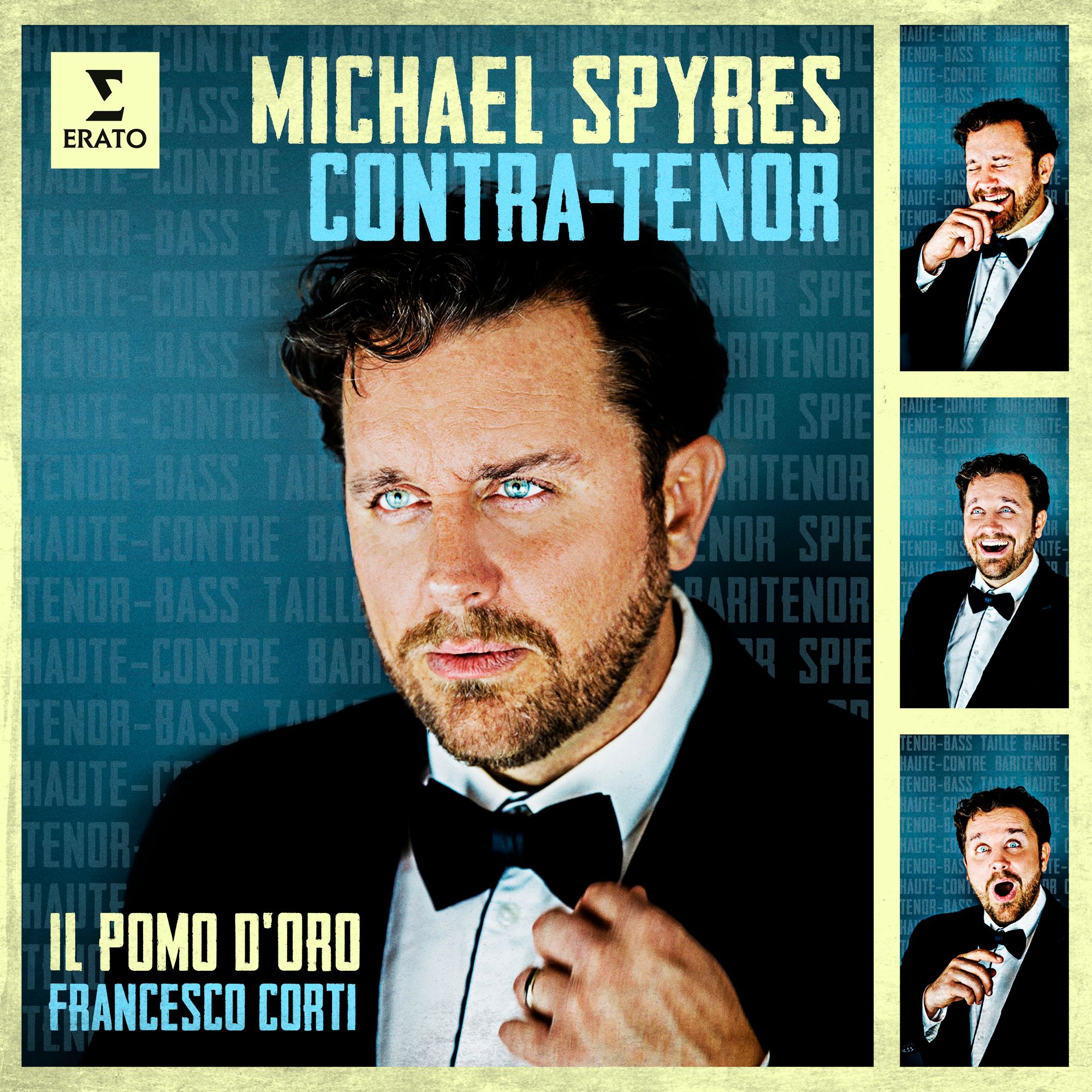Contra-Tenor: the astonishing Michael Spyres

Michael Spyres never fails to impress. Traditional voice types of today tend to disappear as Spyres brings in ideas of teh Baroque era, when the word 'tenor' was too restrictive: : then, there was tenor-bass, baritonor, contre-ténor, haute-contre, Spieltenor, tenor and tallie, plus the most flexible of all, tenore assoluto.
Michael Spyres reminds is of this, in his booklet notes and also in his voice itself. H ebeigns with the beautiful “Cassons de redouter la fortune cruelle” from Lully‘s Persée (LWV 60), beuaituflly matched with the unsurpassable Il d'Oror and Francesco Corti (the disc extends this with an orchestral “Passacaille”); Rameau appwars later in the programme, Neptune’s “Cessez de ravager la terre” from Naïs, a thoroughly delightul Air with a beautifully floated middle section.
Hearing Spyres in an aria from Handel’s Tamerlano (HWV 18) shows the unique combination of strength and agility his voice demonstrates: “Empio, per farti guerra”.
The value of this disc also resides in the variety and depth of repertoire it presents: Vivaldi”s operas are only now revceiving their due, and there’s an aria here from teh little-know Artabano, “Cada pur sul capo audace”, which shows off the lower extension of Spyres” voice well. In contrast, an aria by the lesser-known Leonardo Vinci (no 'da'!, 1690-1730) from his opera Catone in Ulica moves us into the higher regions, and includes some lovely leaps and rapid runs (“Si sgomeni alle sue pene”; sterling work from Il Pomo d'Oro's horns here too).
The sheer exuberance of “Nocchier, che mai non vide l’orror della tempesta” from Porpora’s Germanico in Germania is delicious - the Pomo do’Oror contribution positively fizzes, and Spyres’ leaps are spot-on - and they precede a trip into his upper register that is unforgettable.
Even more obscure arguably is an excerpt from an opera by Domenico Sarro (1679-1744), from his Achille in Scirro: Ulisse’s lyrical “Fra l’ombre in lampo solo,” complemented by Galuppi’s extended, gentile “Vil trofeo d’in alma imbele” (Alessandro’s aria from Alessandro nell’Indie, a World Premiere recording).
The operas of Johann Adolf Hasse (1699-1783) are gaining traction, and listening to Segeste’s aria “Solcar pensa un mar sicurro” from Arminio, one can hear why.
Here’s a video of Spyres singing “Tu m’involasti un regno” from Antigone by Antonio Maria Mazzoni (1717-1785). The leaps he makes in this - deep into his lower register - are amazing, as is the trip from the very top of his range to the very bottom. If any aria exemplifies what makes Spyres unique in the world today, it is this one; the famous “J’ai perdu mon Eurydice” from Gluck’s Orphée et Eurydice acts as balm, itself complemented by a lyrical aria by Mozart, “Se di lauri” from Mitridate. But he couldn’t finish a recital like this in that manner - that’s left to Médor’s aria from Niccolò Piccinni's opera Roland, “En butte aux fureurs de l’orage,” a “storm” aria in which love saves the protagonist from shipwrieck. Som elovely flourishes from Spyres in this attractive aria.
